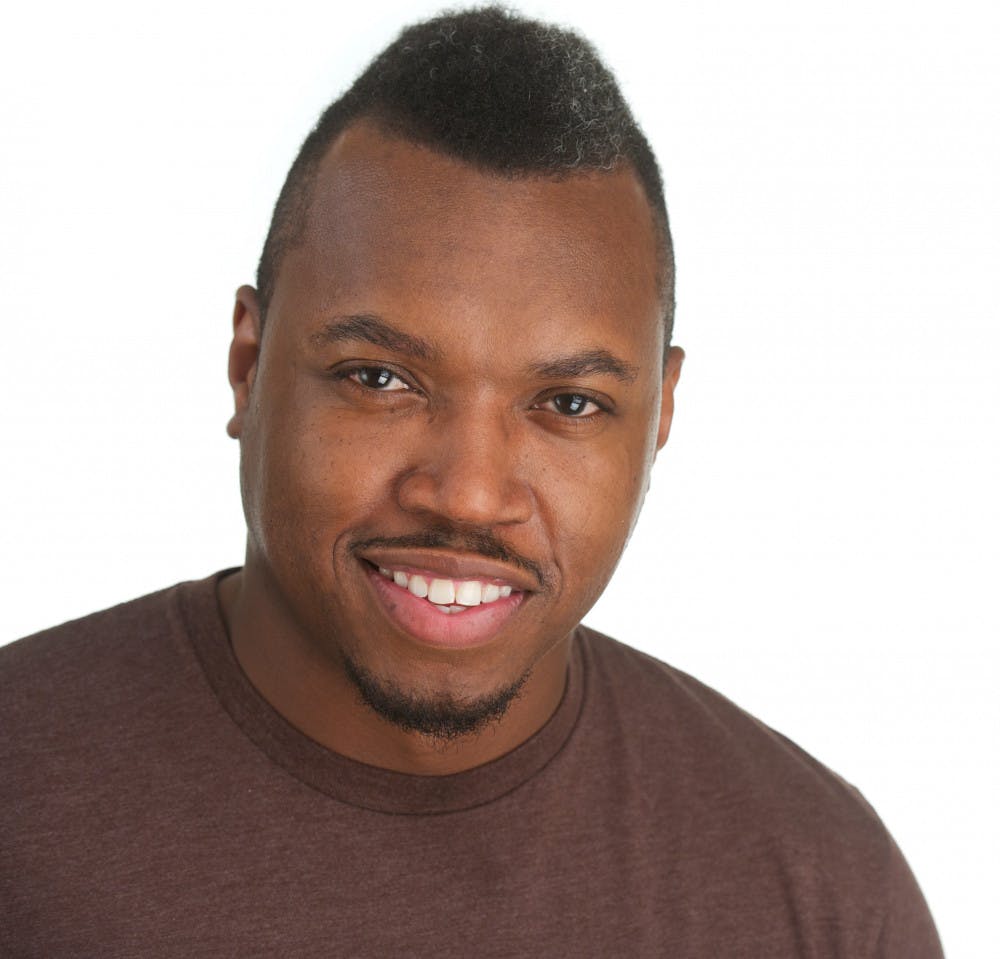Carlos Sirah MFA’17 took the stage in a workshop-style performance of his play, “The Light Body,” Sunday night in the final installment of the theatre and performance studies department’s annual Writing is Live event.
Designed to showcase and explore the work of first- and second-year students in the MFA playwriting program, Writing is Live is “a way for people interested in new writing for performance across Providence to come together for the weekend,” said Paul Margrave ’14, publicity and box office coordinator.
“The Light Body,” written by Sirah and directed by Mauricio Salgado MFA’18, follows Noah, played by Victor Terry, as he struggles to re-adjust to life at home after serving in the Iraq War.
Noah and his partner Micah, played by Ronald Lewis, communicate with each other and with the audience through letters, religious ceremonies, music, memories and dialogue.
“Most of us do not interact with black, queer veterans,” Salgado said. As the director, he worked with Sirah to “bridge the gap between the story and the audience,” he added.
“(Sirah) and I have a similar ethos, a similar desire to be creating work that encourages the audience to take it with them beyond the performance,” Salgado said.
Noah is followed throughout the story by Shu, played by Sirah himself. Named after Eshu — the god of mischief and crossroads in African mythology — Shu embodies Noah’s conscience, haunting him with thoughts of violence and memories of war.
“Some people thought it was his devil,” Salgado said.
Of the four characters in “The Light Body,” Shu was the only one played by a University student, while the majority of the actors were members of the Providence community.
Sirah “had to experiment with finding” the actors, said Erik Ehn, TAPS professor. “Part of his mission as a writer is to form communities.”
Rick Burkhardt MFA’16 has watched “The Light Body” evolve from its inception. “We went on a silent writing retreat last May, and that’s when he started writing this,” Burkhardt said.
Following the performance, Sirah and Burkhardt opened the floor for comments from the audience.
“Some writers are very shy about feedback, but these writers are really game,” Ehn said. “A culture of communication has evolved in the program through the people we have accepted.”
While Sirah is a second-year MFA student, first-year students also saw their work performed as readings over the weekend. These readings allowed each writer to “find out what ingredients are in the piece” beyond the words on the page, said Beth Nixon MFA’18.
The weekend included two readings of Nixon’s play “Vector.” that helped her understand “what the play is,” she said.
With both readings and workshop-style performances, the annual event aims “to give writers a sense of their work beyond the theoretical and to provide them with self-awareness through an encounter with the classical mirror of the audience,” Ehn said.
The program’s third-year students will have their works performed as full-fledged plays in May.





